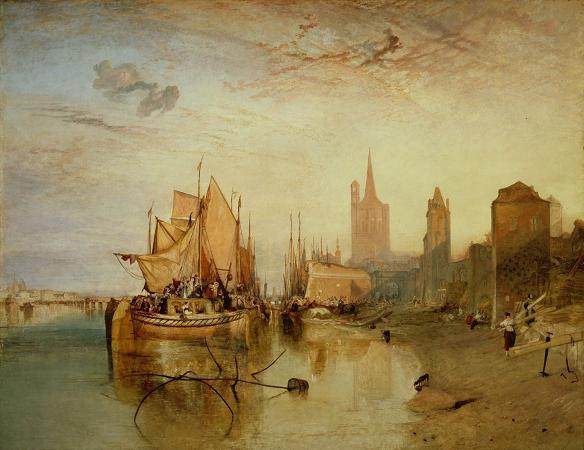Cologne. Cologne is the largest city of Germany's most populous federal state of North Rhine-Westphalia and the fourth most populous city in Germany after Berlin, Hamburg, and Munich. With slightly over a million inhabitants within its city boundaries, Cologne is the largest city on the Rhine and also the most populous city both of the Rhine-Ruhr Metropolitan Region, which is Germany's largest and one of Europe's major metropolitan areas, and of the Rhineland. Centered on the left bank of the Rhine, Cologne is about 45 kilometres southeast of North Rhine-Westphalia's capital of Düsseldorf and 25 kilometres northwest of Bonn. It is the largest city in the Central Franconian and Ripuarian dialect areas. The city's Cologne Cathedral is the seat of the Catholic Archbishop of Cologne. There are many institutions of higher education in the city, most notably the University of Cologne, one of Europe's oldest and largest universities, the Technical University of Cologne, Germany's largest university of applied sciences, and the German Sport University Cologne, Germany's only sport university. Cologne Bonn Airport is Germany's seventh-largest airport and lies in the southeast of the city. The main airport for the Rhine-Ruhr region is Düsseldorf Airport. Cologne was founded and established in Ubii territory in the 1st century AD as the Roman Colonia Claudia Ara Agrippinensium, the first word of which is the origin of its name. An alternative Latin name of the settlement is Augusta Ubiorum, after the Ubii. Cologne, the French version of the city's name, has become standard in English as well. Cologne functioned as the capital of the Roman province of Germania Inferior and as the headquarters of the Roman military in the region until occupied by the Franks in 462. During the Middle Ages the city flourished as being located on one of the most important major trade routes between east and west in Europe. Cologne was one of the leading members of the Hanseatic League and one of the largest cities north of the Alps in medieval and Renaissance times. Prior to World War II the city had undergone several occupations by the French and also by the British. Cologne was one of the most heavily bombed cities in Germany during World War II, with the Royal Air Force dropping 34,711 long tons of bombs on the city. The bombing reduced the population by 95%, mainly due to evacuation, and destroyed almost the entire city. With the intention of restoring as many historic buildings as possible, the successful postwar rebuilding has resulted in a very mixed and unique cityscape. Cologne is a major cultural centre for the Rhineland; it hosts more than 30 museums and hundreds of galleries. Exhibitions range from local ancient Roman archeological sites to contemporary graphics and sculpture. The Cologne Trade Fair hosts a number of trade shows such as Art Cologne, imm Cologne, Gamescom, and the Photokina. Main articles: History of Cologne and Timeline of Cologne The first urban settlement on the grounds of modern-day Cologne was Oppidum Ubiorum, founded in 38 BC by the Ubii, a Cisrhenian Germanic tribe. In 50 AD, the Romans founded Colonia Claudia Ara Agrippinensium on the river Rhine and the city became the provincial capital of Germania Inferior in 85 AD. Considerable Roman remains can be found in present-day Cologne, especially near the wharf area, where a 1,900-year-old Roman boat was discovered in late 2007. From 260 to 271, Cologne was the capital of the Gallic Empire under Postumus, Marius, and Victorinus. In 310, under emperor Constantine I, a bridge was built over the Rhine at Cologne. Roman imperial governors resided in the city and it became one of the most important trade and production centres in the Roman Empire north of the Alps. Cologne is shown on the 4th century Peutinger Map. Maternus, who was elected as bishop in 313, was the first known bishop of Cologne. The city was the capital of a Roman province until it was occupied by the Ripuarian Franks in 462. Parts of the original Roman sewers are preserved underneath the city, with the new sewerage system having opened in 1890. Early medieval Cologne was part of Austrasia within the Frankish Empire. In 716, Charles Martel commanded an army for the first time and suffered the only defeat of his life when Chilperic II, King of Neustria, invaded Austrasia and the city fell to him in the Battle of Cologne.
more...








